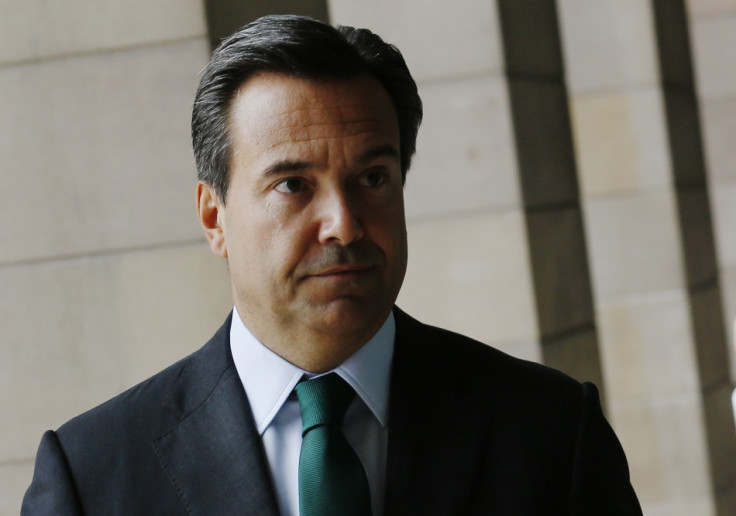Lloyds Says It Did Not Face Political Pressure To Pick Co-Op Bank Over NBNK

Former NBNK Investments chair Lord Peter Levene, one among three bidders looking to buy 632 brances of Lloyds bank in a deal worth £750m, said his company lost out to rival bidder Co-operative Bank after "senior (British) politicians" preferred the bank over his firm and Sun Capital. Lloyds, however, denies there was any such pressure.
Lord Levene said he received messages during the sale process, known as Project Verde, "indicating there had been significant political involvement," Reuters reported. Levene, according to Reuters, was told that the 'Lloyds' Verde decision (was) based on indication(s) from senior politicians in (the) coalition (government) that (the) co-op deal (was) preferred.'
Lloyds Banking Group's Chairman Sir Win Bischoff said today "there was no political pressure" on his bank to choose Co-operative Bank's offer and that NBNK failed to come up with a "higher price." Sir Win and Chief Executive Antonio Horta-Osorio were at Portcullis House earlier in the morning, where they were grilled by the Parliament's Treasury Select Committee's on the collapse of the deal with Co-operative Bank.
"We took [NBNK] bid very seriously. It was a credible bid. There was also the execution. Co-op had a brand name, you may think tainted, but had a brand name. It had a relationship with the FSA. It had staff and it had a rating. NBNK had none of those so the execution risk - we had to take into account that and financial side.
"NBNK had five opps to bid. I don't think we could have done any more. We would have been perfelcty happy for NB to have won this. There was no political pressure. Had NBNK had a higher price and had five opps to bid... It was slightly lower in financial terms and very heavily disadvantaged on execution side," Sir Win told the Committee earlier in the morning.
Co-operative Bank pulled out of the deal in April, close to 18 months after winning the bid, blaming regulatory pressures and the poor economic climate. News about the £1.5bn capital hole on Co-op Bank's balance sheet came to light shortly afterward.
The Treasury Select Committee inquiry earlier today revealed that Lloyds' board did not respond to an NBNK memo that insisted Co-op Bank's bid was laden with risks. The memo also said Co-Op would not be able to finance the Verde transaction. Responding, Sir Win said he did not recall the memo and mentioned that the Lloyds board would have looked at the Co-op bid "in as critical a way as you'd expect to."
On being questioned as to what Lloyds did about concerns of a black hole on Co-op Bank's balance sheet, Horta-Osorio said they had enquired about it. "It was given to (Lloyds) not in a sense of a warning... The Co-op's answer was we are handling this, we have several options to handle this and we are revising plan."
Moody's, which had slashed the bank's credit rating to junk status recently, downgraded the bank's senior debt and deposit ratings on 18 June, a day after the bank announced its recapitalisation plan.
© Copyright IBTimes 2024. All rights reserved.







